Related projects
As low-carbon heating and cooling becomes an increasingly important part of European energy policy, more research is being done in the field. Below is an overview of some of the projects that are related to THERMOS.
We are always on the lookout for new mutually-beneficial partnerships.
If you have any suggestions, please feel free to contact us.

Heat Roadmap Europe: The Heat Roadmap Europe project is mapping and modelling the heating and energy systems of the 14 largest users of heat in the EU, to develop new policies at the local, national, and EU level to ensure the uptake of efficient, sustainable, and affordable heating and cooling solutions. These 14 countries cover 85-90% of the heating and cooling demands in Europe!

WEDISTRICT: the project aims to demonstrate100% fossil free heating and cooling solutions for new and existing district heating and cooling systems. These solutions will integrate multiple sources of renewable energy and excess heat, advanced thermal storage, and smart technologies to increase the operational efficiency of systems. Implementation will take place in four real-scale projects in Spain, Romania, Poland and Sweden. Best practices are to be replicated across different climate zones and building types.

GrowSmarter: GrowSmarter brings together cities and industry to integrate and demonstrate ‘12 smart city solutions’ in energy, infrastructure, and transport, to provide other cities with valuable insights on how they work in practice and opportunities for replication. The idea is to create a ready market for these smart solutions to support growth and the transition to a smart, sustainable Europe.
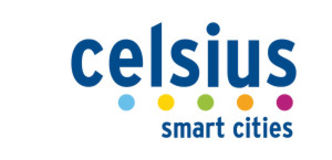
CELSIUS: The four-year project is coordinated by the City of Gothenburg and presents best practice solutions in the area of smart district heating and cooling by taking a holistic approach to overcome technical, social, political, administrative, legal, and economic barriers.

PLANHEAT: PLANHEAT’s main objective is to develop and validate, in real case scenarios, an integrated and easy-to-use tool, which supports local authorities in selecting, simulating, and comparing alternative low carbon and economically sustainable scenarios for heating and cooling.

HotMaps: The project aims at designing a toolbox to support public authorities, energy agencies, and urban planners in strategic heating and cooling planning at the local, regional, and national levels, and in line with EU policies.

CoolHeating: The objective of CoolHeating is to support the implementation of "small modular renewable heating and cooling grids" for communities in South-Eastern Europe. CoolHeating transfers knowledge from partners in countries where renewable district heating and cooling examples exist to countries where there are less examples in the sector.
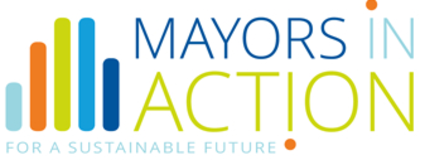
Mayors in Action: The Mayors in Action project, co-funded by the Intelligent Energy Europe 2013 Programme, focuses on Coordinators & Supporters of the Covenant of Mayors to foster and empower them in selecting, adapting, and channeling good practices for the implementation and monitoring of existing SEAPs.

50000&1 SEAPs: The 50000&1 SEAPs project provides a coherent approach to integrating Energy Management Systems (EnMS) with Sustainable Energy Action Plans (SEAPs) according to energy management standards such as ISO50001.
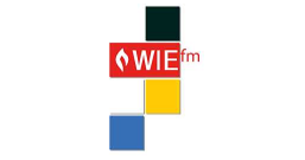
WIEfm: The Dutch/German INTERREG-V project WiEfm focuses on a climate-friendly and sustainable heat supply in the EUREGIO in order to reach the (inter)national and regional climate protection goals. Project partners are the regional business development agencies, the University of Applied Sciences in Münster and the Saxion University of Applied Sciences, Enschede.
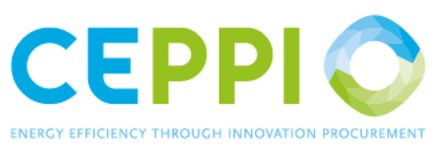
CEPPI: Birmingham (UK), Budapest (Hungary), Castelló & Valencia (Spain) and Wrocław (Poland) will demonstrate that by selectively intervening in scheduled public tenders, energy energy consumption can be reduced and GHG emissions decreased.
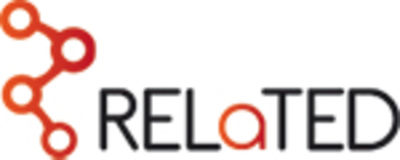
RELaTED: RELaTED's main goal is to provide a concept of decentralized Ultra-Low Temperature (ULT) network solutions that can pave the way for establishing, expanding and modernizing district heating networks in Europe. The concept aims to allow for significantly lower temperatures being used in the DH networks. The project follows the strategy of the electrical smart grids, in which energy generation is decentralized and consumers evolve to prosumers and will demonstrate its concept in four complementary operation environments in Denmark, Estonia, Serbia and Spain.
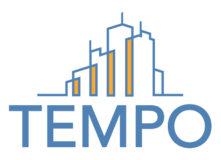
Tempo: Tempo develops technical innovations that enable district heating networks to operate at lower temperatures and make them suitable for a sustainable energy system. The project aims to combine individual technologies into solution packages for dedicated application areas covering 90% of the European district heating market. TEMPO further seeks to empower consumers through digital solutions and will develop new business models.

ReUseHeat:The project will showcase replicable models enabling the recovery and reuse of excess heat available at urban level, with the aim to increase energy efficiency of district heating and cooling systems in cities across Europe.
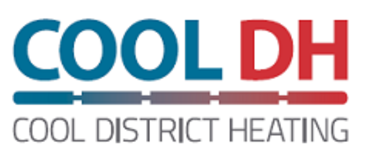
COOL DH: The project aims to showcase how District Heating systems can be more resource efficient and more energy efficient. COOL DH is designed to innovate, demonstrate, evaluate and disseminate technological solutions needed to use sources of very low-grade waste heat for heating of energy efficient buildings via Low Temperature District Heating (LTDH).
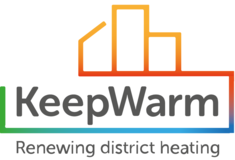
KeepWarm: The project is designed to accelerate cost-effective investments in the modernisation of District Heating Systems (DHS) and reduce greenhouse gas emissions by improving system operations and promoting a switch to less-polluting sources. Focus is on Central and Eastern Europe with best practices replicating KeepWarm’s approach for environmentally-friendlier heating and cooling foreseen to be taken up across Europe.

Task Force Heat Turnaround is an EU INTERREG-funded research project aiming to implement specific solutions at local level to tackle the challenges of a collective, sustainable heat supply in the EUREGIO by developing and supporting projects that are currently in the planning or preliminary phase of development.


